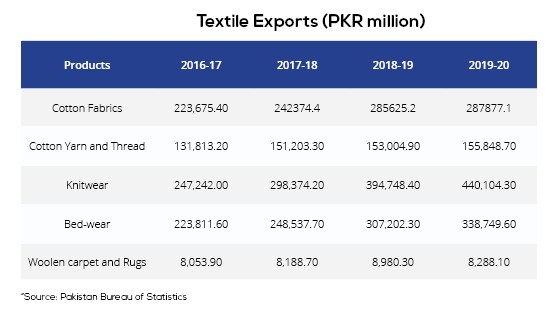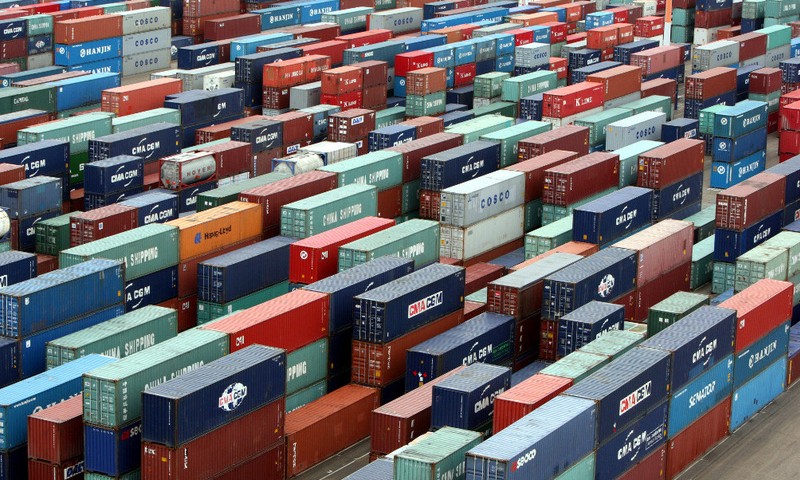Positive data released by Ministry of Commerce (MoC) on Monday showed that Pakistan’s export grew to $2.14 billion for the fifth consecutive month in January. This is positive news – but given the low base from which we are achieving this is something for our policymakers to reflect upon.
PM Khan acknowledges the critical role of exports in the national economy and has committed to extend all possible facilitation to the exporters and remove any hurdles that might come in the way of enhancing the country’s exports. Under the ‘Make in Pakistan’ policy that was introduced by the government to promote export-oriented industrialization in the country, the government is aiming to take Pakistani exports to $150 billion by 2025.
Pakistan’s lagging exports have been a problem for decades now. Each year leaves the country even further behind compared to its competitors. Whilst Indian Exports in 2020 were over $290bn, Pakistan’s were a measly $23 billion, over 12 fold difference, even Bangladesh had $34 billion after seeing a 15% contraction due to Covid-19. And what to say of our East Asian competitors; Thailand and Vietnam, had export growth of 136% and 519% in the last fifteen years.

The country has a narrow base, which it inherited from pre-Independence and has done very little to expand and diversify subsequently. While traditional exporters – textiles and a few other categories- have been given extensive support by the state again and again – they cry too little too late.
Indeed, most of them have done very little themselves to diversify and go into value-added goods. Ironically, this is made clear when looking at many of Pakistan’s wealthiest business groups – they do not specialize in exports – two of the country’s most affluent groups – hold this position due to their interests in real estate, (see our two-pager: Pakistan’s Top 10 Business Groups).
Read more: Titans of Pakistani Business
What is clear is that for ‘Made in Pakistan’ to take off, the country needs to make changes in several areas including in productivity-enhancing areas, such skill set development and increased research and development, trade liberalization, and energy security – random policies of switching off the gas to industry to help win votes from domestic consumers does not help the nation in the long run.
Agriculture needs immediate attention and not only in terms of price of sugar or wheat, but even more crucially in terms of policies to encourage quality seeds, availability and application of proper nutrients, and technology usage on the fields to increase productivity.
South Korea’s example leaps up again and again in our articles as a nation that broke through its chains of being stuck on low-value exports; with targeted policies including incentive structures, to now being a leading country in high technology areas including semiconductors, computers and such.
Read more: Pakistan’s Exports – Unexpected surge amidst new opportunities
In this February issue, as part of our vision 2030 focus, we asked experts to give us their views on Pakistan’s opportunities and challenges. Secretary-General Pakistan Textile Exporters Association Azizullah Goheer argues while Pakistan’s exports have currently got a boost due to problems faced by regional competitors during the Covid-19 pandemic, for these to become long term gains, requires strategic policies on capacity development, focus on brand development, and creation of special economic zones concentrating on exports.
International development consultant Hasaan Khawar argues that Pakistan needs to break out of its textile economy mentality, push itself out of the low-tech sectors and focus on high-value addition sectors that have greater growth and value potential. He urges the government to identify winning sectors, including those concentrated on global value chains, for Pakistan’s long-term growth and strategize policies to help them develop.
Gonzalo J. Varela, a Senior economist at the World Bank, shares his recommendations on how Pakistan’s current trade policy (focused on increased import tariffs) actually hinders productivity gains and increases prices paid by domestic consumers as local producers in many markets increase their prices to match those of higher-priced imported goods.


